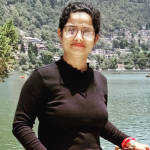Course Information
- 2023-24
- CFR213
- 5-Year B.A., LL.B. (Hons.), 3-Year LL.B. (Hons.), LL.M., Master's Programme in Public Policy
- III, IV, V
- Nov 2023
- Elective Course
How does this course relate to the programme curriculum: Does it develop on a prior course in the programme or is it a foundational or standalone course?
This course is a unique undertaking in developing foundational understanding of students in the realm of forest rights by exposing them to the field. Theory is often done in a vacuum, where students engage with difficult ideas like decolonialism without exposure to the political and sociological realities of the field – the area where laws are contested and administered. This course is a marriage of classroom theoretical studies and field learnings. The course is will be expanding the knowledge of students about the paradigm shifting Forest Rights Act of 2006 and its linkages with the Panchayat Extension to Scheduled Areas Act of 1996. It would cultivate an environment for students to understand what is the 2006 Act, how it has altered the course of forest jurisprudence and how it engages with the many different power sites in the forest: state instrumentalities like the forest department and legislations like the Indian Forest Act, 1927. It will provide them with the opportunity of community interaction and doing theory by village level classroom study.
Describe how you have approached the course. What have you included/excluded and why? Choice of materials: primary or secondary readings / case law;
1.This Course will start with basic understanding on FRA ,2006 & PESA
2.Students will join in Field in Banglore,(BRT) where local community members will help them to get direct exposure in the field to understand FRA closely to understand the initiative taken by community .
3. Students will get opportunity to talk to different stake holders for ex: Interaction with Lawyers, Researchers and different forums,Civil Societies .This will help students to expand their knowledge by interacting with different people working on implementation of this Act.
4.As its a clinical course Students have to spend minimum 2 days in field and classes will be conducted with community in BRT Hill .
5.After the Theory and Field level study will be over Students have to submit their findings and full report .This will be a report which will include both Primary & secondary informations.
Describe your pedagogical method: lectures, Socratic discussion, seminar style discussion, response papers or group work, field work;
1.This course will be basically interactive method to give Students practical exposure from beginning by connecting them with different stakeholders .
2. Group work will be mandatory during classroom sessions as well as in the field .(Focused group discussion ,Discussion with Local Community based Organisations,Discussion with Women Collectives ).
3. Lecture session will be conducted with Faculty member before starting the field work in Bangluru .
Describe the layout of the course: module structure and sequence.


